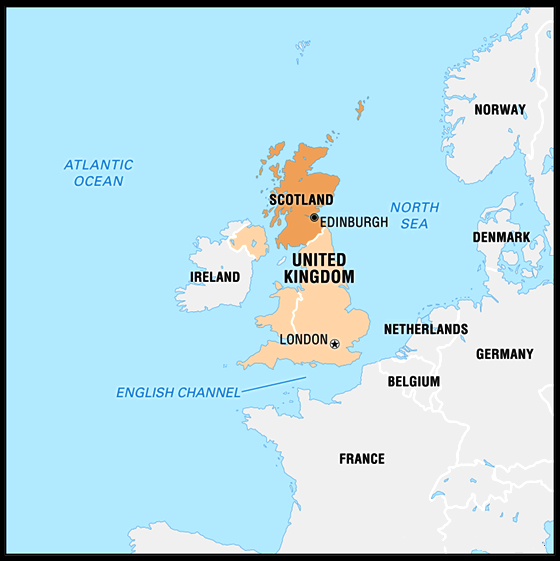Period Poverty | 17 Aug 2022
For Prelims: Period Products Act, Government’s Initiatives
For Mains: State of Menstrual Health in India, Issues related to women, Gender
Why in News?
Scotland has become the first nation in the world to legally protect the right to access free period products and have made period products free for all by passing the Period Products Act.
- Period poverty is when those on low incomes can't afford, or access, suitable period products.
What do we know about the Development in Scotland?
- About:
- Under the Period Products Act, schools, colleges and universities as well as local government bodies must make a range of period products available for free in their bathrooms.
- Every council in Scotland is required with local communities to determine the best access point for menstrual products.
- Accessibility:
- A mobile phone app (PickUpMyPeriod) also helps people find the nearest place — such as the local library or community center — where they can pick up period products.
- The period products would be available at libraries, swimming pools, public gyms, community buildings, town halls, pharmacies & doctor’s offices.
What has been the state of Menstrual Hygiene in India?
- According to a United Nations Children’s Fund (UNICEF) study conducted in 2011:
- Only 13% of girls in India are aware of menstruation before menarche.
- 60% of girls missed school on account of menstruation.
- 79% faced low confidence due to menstruation and 44% were embarrassed and humiliated over restrictions.
- Thereby, Menstruation adversely impacts women's education, equality, maternal and child health.
- National Family Health Survey 5:
- Women aged 15-24 years using period products:
- Seventeen states and Union Territories (UTs) had 90% or more of their women using period products.
- In Puducherry and the Andaman and Nicobar Islands, the fraction was 99%.
- Tripura, Chhattisgarh, Assam, Gujarat, Meghalaya, Madhya Pradesh and Bihar – had 70% or fewer of their women using period products.
- Bihar was the only state to report a figure lower than 60%.
- Seventeen states and Union Territories (UTs) had 90% or more of their women using period products.
- Top three states that reported an increase in the percentage of women using period products from NFHS-4 to NFHS-5:
- Bihar: 90%
- Odisha: 72%
- Madhya Pradesh: 61%
- Women aged 15-24 years using period products:
What Initiatives has the Indian Government taken for Menstrual Hygiene?
- Shuchi Scheme:
- Shuchi Scheme aims aimed at instilling awareness about menstrual hygiene among adolescent girls.
- It was started in 2013-14 initially as a Centrally-sponsored one.
- However, the Centre asked States to take over the scheme from 2015-16.
- Menstrual Hygiene Scheme:
- Menstrual Hygiene Scheme focuses on promotion of menstrual hygiene among adolescent girls (10-19 years) in rural areas of selected districts in 2011.
- SABLA programme:
- It was implemented by the Ministry of Women and Child Development.
- It focuses on nutrition, health, hygiene and reproductive and sexual health (linked to rural mother and childcare centres).
- National Rural Livelihood Mission:
- It supports self-help groups and small manufacturers to produce sanitary pads.
- Swachh Bharat Mission and Swachh Bharat: Swachh Vidyalaya (SB:SV):
- Menstrual hygiene management is also an integral part of the Swachh Bharat Mission.
- Guidelines for Gender Issues in Sanitation (2017):
- These have been evolved by the Ministry of Drinking Water and Sanitation to ensure gender equality and empowerment of women and girls with respect to sanitation.
- Safe and effective menstrual hygiene management is a trigger for better and stronger development for adolescent girls and women.
- The National Guidelines on Menstrual Hygiene Management:
- It was released by the Ministry of Drinking Water and Sanitation in 2015.
- It seeks to address every component of menstrual hygiene ranging from, raising awareness, addressing behaviour change, creating a demand for better hygiene products, capacity building etc.
Way Forward
- The Government of India should also consider the approach as of Scotland’s and make the period products available or at reasonable concession/discount.
- The government can also promote small-scale sanitary pad manufacturing units to make low-cost pads more easily available, it will also help in generating income for women.
- The government needs to provide, efforts directed at awareness and education about menstruation and menstrual hygiene, and access to safe products, and responsive water, sanitation and hygiene (WASH) infrastructure.
- However, menstrual health cannot be achieved only through governmental efforts without addressing it as a social issue, requiring interventions at societal, community and familial level.

